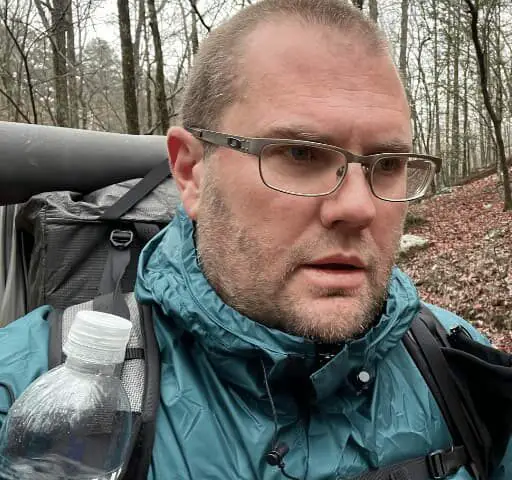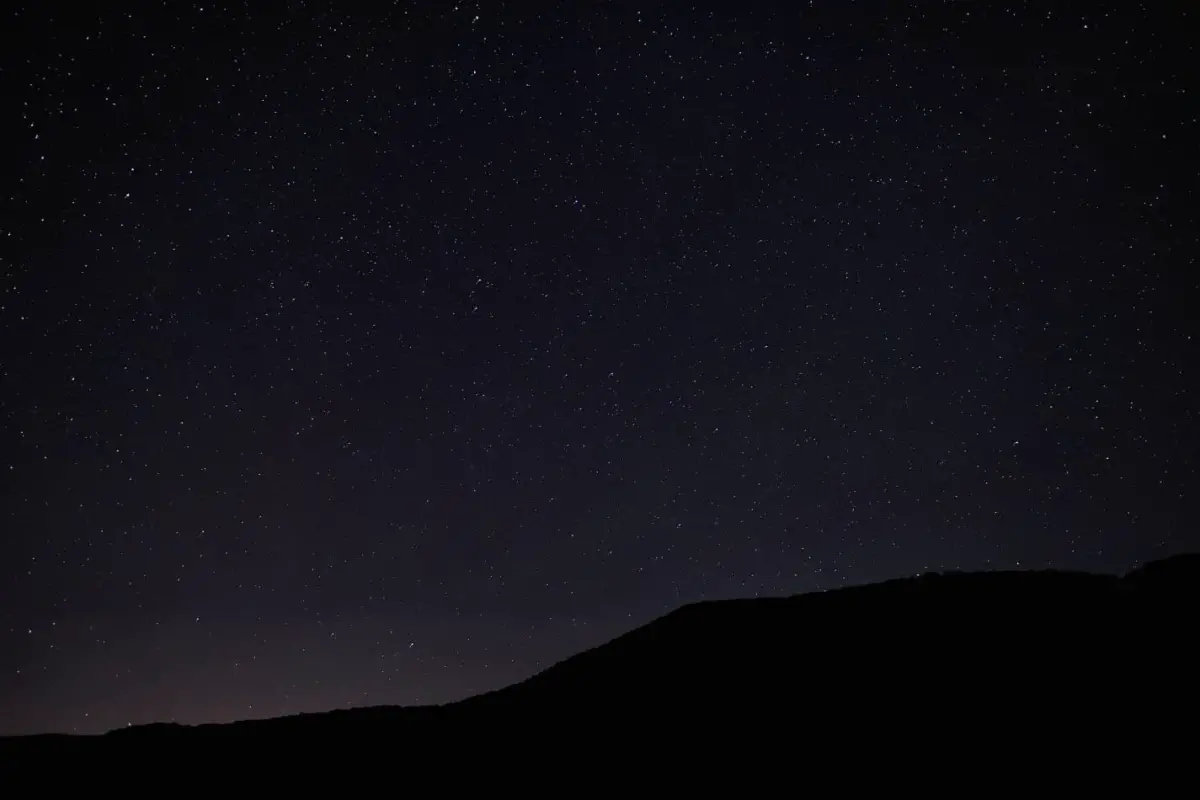Hikers in the dark are often met with a feeling of trepidation and fear because they can’t see what’s coming up ahead on the trail. However, hiker midnight also has many benefits: it creates opportunities to enjoy night sounds, experience night on the trail, allows hikers to bond at shelters, and get that all-needed recuperative rest.
Hiker midnight is a term used for when the daytime evaporates (typically around 9 pm) as night comes fast once on the trail and you don’t have city lights. This time can be used in many ways to help build trail friendships and to let exhausted hikers shut it down and get up early the next day.
Many new thru-hikers will think the nights will be rambunctious party time, but in reality, for nearly all on the trail, you will be torched from the 12-20+ miles hiked in the day, and your bed will sound fantastic.
The Restorative Power of an Early Bedtime
There are many reasons why you want to have an early bedtime when you are on the trail, especially in those first weeks when you are adjusting to the trail life.
Bedtime is the best time for hikers to let their thoughts and emotions out. Many will journal on their phones as this is when many old memories can flood back from memories long forgotten.
Recuperative Sleep
The most important reason is to get your recuperative sleep. When you hike all day, the need for rest and recovery is essential in avoiding injury or getting sick on the trail.
You will find if you hike hard all day, it will be difficult to stay up once the sun goes down. Instead, you want to focus on resting so your body can prepare for the next day of hard hiking.
It can take a bit to adjust to sleeping on the trail, and quality sleep at first will be hard to come by as many will toss and turn, leading to less quality rest.
Easy to Wake Early
Most thru-hikers start their hiking days early as it allows you to make more miles in the day and less time spent in camp.
The earlier you get up in the morning, the more hiking miles you can make in the day, and while some will try to sleep in later on their first days, it’s typically hard to rest once the sun is up and people are active.
This is where an early bedtime helps out immensely by allowing hikers to wake up easily when they want or need to.
In addition, the sound of birds and wildlife will help rouse your body from slumber, as nature is typically active before sunrise. This can be a nice alarm clock that many hikers love waking up to.
Embracing the Adventure of Night on the Trail
There are some reasons why you may choose not to go to bed early and instead hike or enjoy the end of your day in the dark.
If you are hiking with a tramily, it may be nice to relax and talk and share stories. You can let out some emotions or stress together, which makes for a bonding experience during the hike.
Explore Night Hiking
The night makes for a great time to explore and check out the night sky without the city lights and associated light pollution. There is a whole world that opens up when you take away those city lights and let yourself be immersed in nature’s masterpiece of stars above, with hardly any light pollution for miles around.
Add on the ability to hike at night when the daytime temperatures are extreme, and there are many reasons why you should explore night hiking on your thru-hike.
Having the opportunity to hike at night is a great way to break up the monotony of day after day hiking and seeing more than just trees along the trail. It gives hikers an entirely different perspective while still being safe with proper gear, knowledge, and experience.
Even if you aren’t an avid night hiker on the trail, it’s a great time to learn and enjoy what nature has on display at night as long as you do so safely with proper gear and knowledge of how to do so. You don’t want hikers getting hurt or lost because they ventured out unprepared into the dark!
Coming Together Around the Campfire: How Hiker Midnight Bonds Relationships
Even hiker midnight has several positive impacts on other hikers as this is when many will congregate at shelters or campsites and enjoy conversation, laughter, stories, and bonding to go around.
This can be nice because it helps form those relationships with like-minded hikers going through similar experiences but from incredibly different places in life, which makes for excellent conversations.
When the end of the day comes, many will choose to huddle around the shelter, and the groups will sit around a fire to stay warm or enjoy their meal while talking about what’s happened on the trail and what may be coming up next.
This isn’t just nice for socializing, but it can be a great learning experience as you get fresh perspectives from others who have hiked different places and made alternate trails that may have helped them avoid particular challenges you are now finding yourself facing.
Final Thoughts on Hiker Midnight
If you want to have a positive experience on your thru-hike, you must get enough sleep to aid in proper recovery when abusing your body day in and out.
When the end of the day comes, many will choose to huddle around the shelter and the groups will sit around a fire to stay warm or enjoy their meal while talking about what’s happened on the trail along with what may be coming up next.
This can be nice because it helps form those relationships with like-minded hikers who are going through similar experiences but from incredibly different places in life which make for amazing conversations.
The hours of darkness are a time to bond with your fellow hikers while you share stories, laugh together, and learn new perspectives on the trail. It’s an important part of any thru-hike that should not be taken for granted!


Leave a Comment